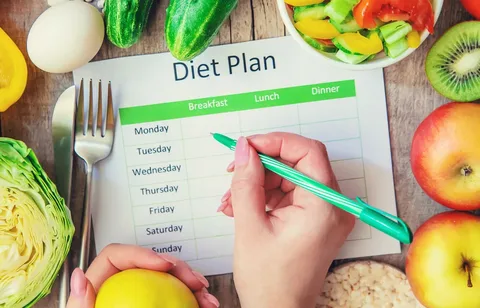Introduction
A vitamin-rich meal plan is essential for maintaining overall health and well-being. Vitamins play crucial roles in various bodily functions, from immune support to energy metabolism. By planning meals that are rich in vitamins, you can ensure your body gets the nutrients it needs to thrive.
In this guide, we’ll explore how to create a balanced and vitamin-rich meal plan that supports your health goals. We’ll cover essential vitamins, food sources, meal planning strategies, and common FAQs to help you navigate the process effectively.
Understanding Essential Vitamins
What are vitamins and why are they important?
Vitamins are organic compounds that are essential for normal physiological functions in the body. They play critical roles in metabolism, immune function, and overall health. There are two main types of vitamins: fat-soluble (such as vitamins A, D, E, and K) and water-soluble (such as vitamin C and the B vitamins).
How do vitamins benefit the body?
Each vitamin has specific functions:
- Vitamin A: Supports vision, immune function, and skin health.
- Vitamin C: Acts as an antioxidant, supports immune function, and aids in collagen production.
- Vitamin D: Essential for bone health and helps regulate calcium absorption.
- Vitamin E: Acts as an antioxidant and supports immune function.
- Vitamin K: Important for blood clotting and bone health.
- B Vitamins: Including B1 (thiamine), B2 (riboflavin), B3 (niacin), B6, B12, biotin, and folate (B9), these vitamins play roles in energy metabolism, nerve function, and red blood cell production.
What are the best food sources for each vitamin?
- Vitamin A: Found in liver, carrots, sweet potatoes, spinach, and kale.
- Vitamin C: Found in citrus fruits, strawberries, bell peppers, and broccoli.
- Vitamin D: Found in fatty fish (e.g., salmon, mackerel), fortified dairy products, and sunlight exposure.
- Vitamin E: Found in nuts, seeds, vegetable oils, and leafy greens.
- Vitamin K: Found in leafy green vegetables, broccoli, and soybeans.
- B Vitamins: Found in whole grains, meat, poultry, fish, dairy products, and leafy green vegetables.
Planning a Vitamin-Rich Meal Plan
How do I start planning a vitamin-rich meal plan?
- Assess your nutritional needs: Consider your age, sex, activity level, and any specific health concerns.
- Choose a variety of foods: Aim for a diverse range of fruits, vegetables, whole grains, lean proteins, and healthy fats.
- Incorporate seasonal and local produce: Fresh, seasonal foods often have higher nutrient content.
- Consider cooking methods: Opt for steaming, baking, or sautéing over frying to preserve nutrient content.
What should a typical day of meals look like in a vitamin-rich meal plan?
- Breakfast: Greek yogurt with berries and nuts (vitamin C, E, B vitamins)
- Lunch: Grilled chicken salad with mixed greens, tomatoes, avocado, and a vinaigrette dressing (vitamin A, C, E, K)
- Dinner: Baked salmon with quinoa and steamed broccoli (vitamin D, E, B vitamins)
How can I ensure I’m getting enough vitamins if I have dietary restrictions (e.g., vegetarian, vegan)?
- Vegetarian: Focus on plant-based sources of vitamins such as legumes, nuts, seeds, and fortified foods.
- Vegan: Incorporate fortified foods (e.g., plant milks, nutritional yeast) and consider supplements for vitamin B12 and D.
- Gluten-free: Choose naturally gluten-free whole grains like quinoa, rice, and buckwheat for B vitamins.
Common FAQs About Vitamin-Rich Meal Plans
What role do supplements play in a vitamin-rich diet?
Supplements should complement, not replace, a balanced diet. Consult a healthcare professional before taking supplements to address specific deficiencies.
How can I maintain variety in my meals while ensuring they are still vitamin-rich?
Rotate through different fruits, vegetables, grains, and proteins to ensure a wide array of nutrients. Experiment with herbs, spices, and cooking methods to keep meals exciting.
Can I get all the vitamins I need from food alone?
In most cases, a well-planned diet can provide adequate vitamins. However, supplements may be necessary for certain populations or those with restricted diets.
How can I store and prepare foods to retain their vitamin content?
Store fruits and vegetables properly to maintain freshness. Minimize cooking time and avoid excessive heat to preserve water-soluble vitamins like vitamin C.
Are there specific vitamins that are more important for certain age groups?
Yes, for example, vitamin D and calcium are crucial for bone health in children and older adults, while folate is important for women of childbearing age.
Should I be concerned about overdosing on vitamins?
Excessive intake of certain vitamins, particularly fat-soluble vitamins like A and D, can be harmful. Stick to recommended daily allowances unless advised otherwise by a healthcare provider.
How can I incorporate vitamin-rich foods into snacks?
Opt for snacks like yogurt with fruit, raw vegetables with hummus, or a handful of nuts and seeds to boost your vitamin intake between meals.
What are some budget-friendly ways to create a vitamin-rich meal plan?
Choose seasonal produce, buy in bulk when possible, and opt for frozen fruits and vegetables, which can be just as nutritious as fresh.
How can I ensure my vitamin-rich meal plan supports weight loss goals?
Focus on nutrient-dense foods that are lower in calories but rich in vitamins and minerals. Include plenty of vegetables, lean proteins, and whole grains while moderating portions.
What are some tips for dining out while following a vitamin-rich meal plan?
Look for restaurants that offer grilled or baked options, include a variety of vegetables, and ask for dressings and sauces on the side to control portions and nutrient intake.
Conclusion
Creating a vitamin-rich meal plan involves understanding the role of different vitamins, choosing nutrient-dense foods, and planning meals that support your health goals. By incorporating a variety of fruits, vegetables, lean proteins, whole grains, and healthy fats into your diet, you can ensure you’re getting the vitamins your body needs to thrive.
Remember, a balanced approach to eating, along with regular physical activity and adequate hydration, is key to overall health and well-being. Consult with a registered dietitian or healthcare provider for personalized advice based on your individual needs and goals.
Now, armed with this guide, you’re ready to embark on creating your own vitamin-rich meal plan tailored to your lifestyle and preferences. Happy eating!
- Hypersexuality And Its Influence On Romantic Dynamics - May 30, 2025
- Nu-Derm Skin System Near Hale, Surrey - May 30, 2025
- Neck Line Filler Treatment Near Puttenham, Surrey - May 29, 2025





